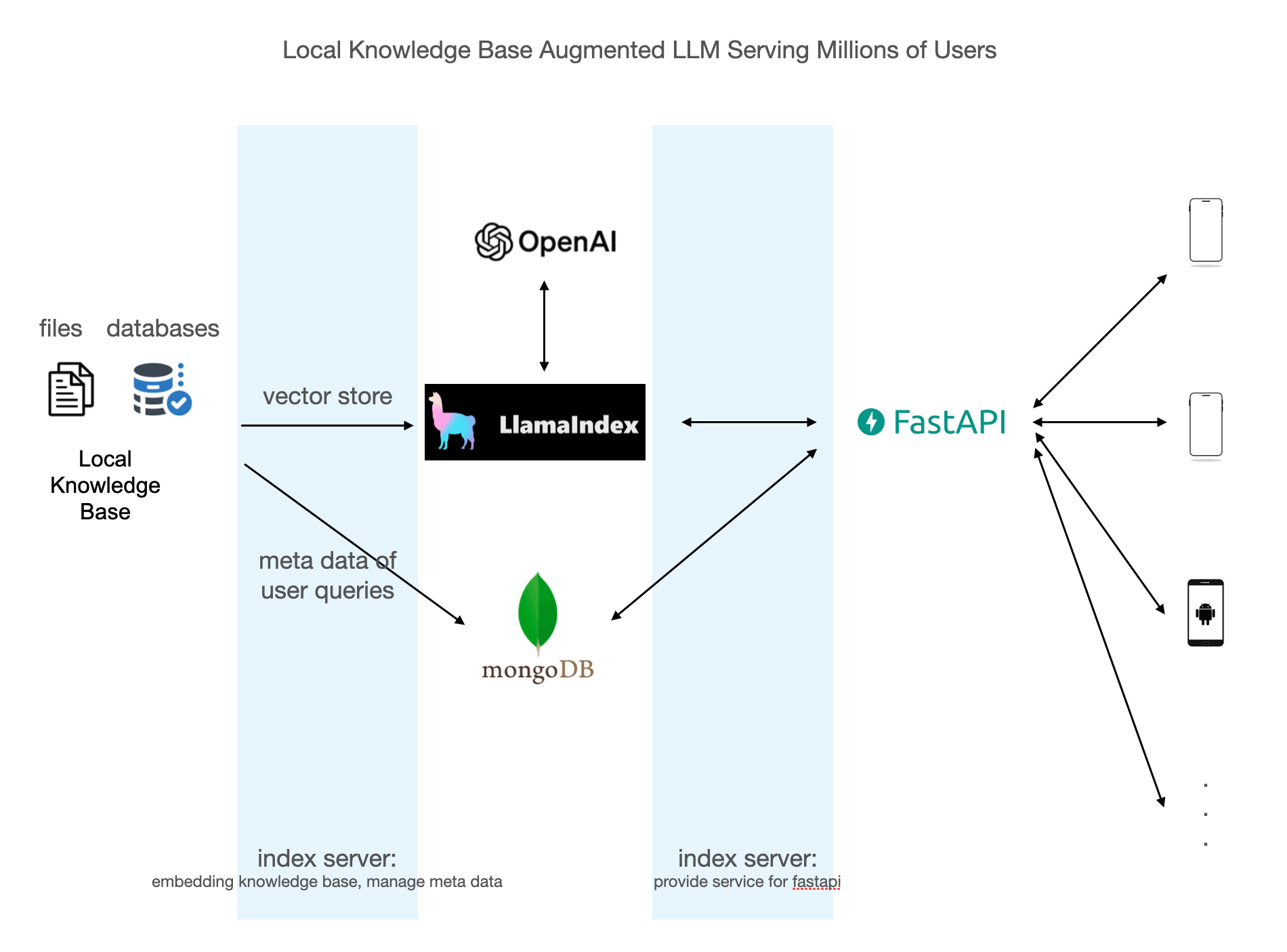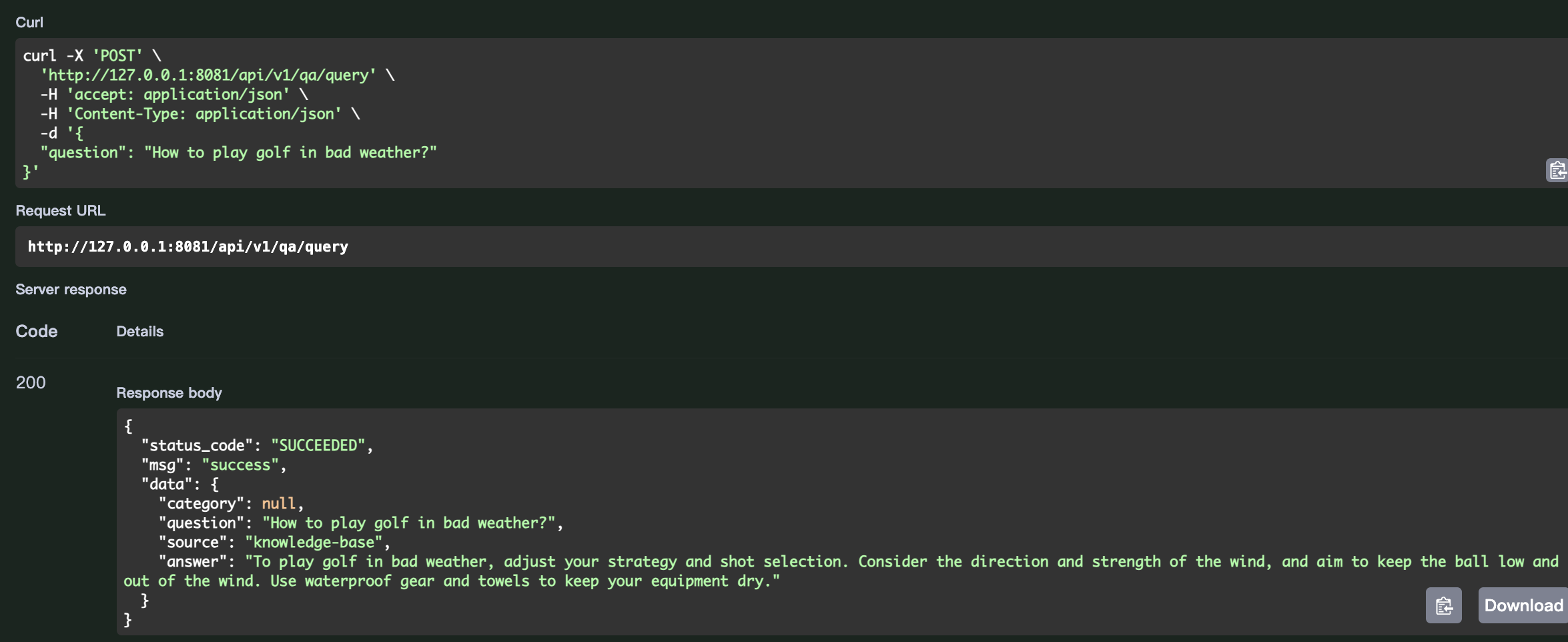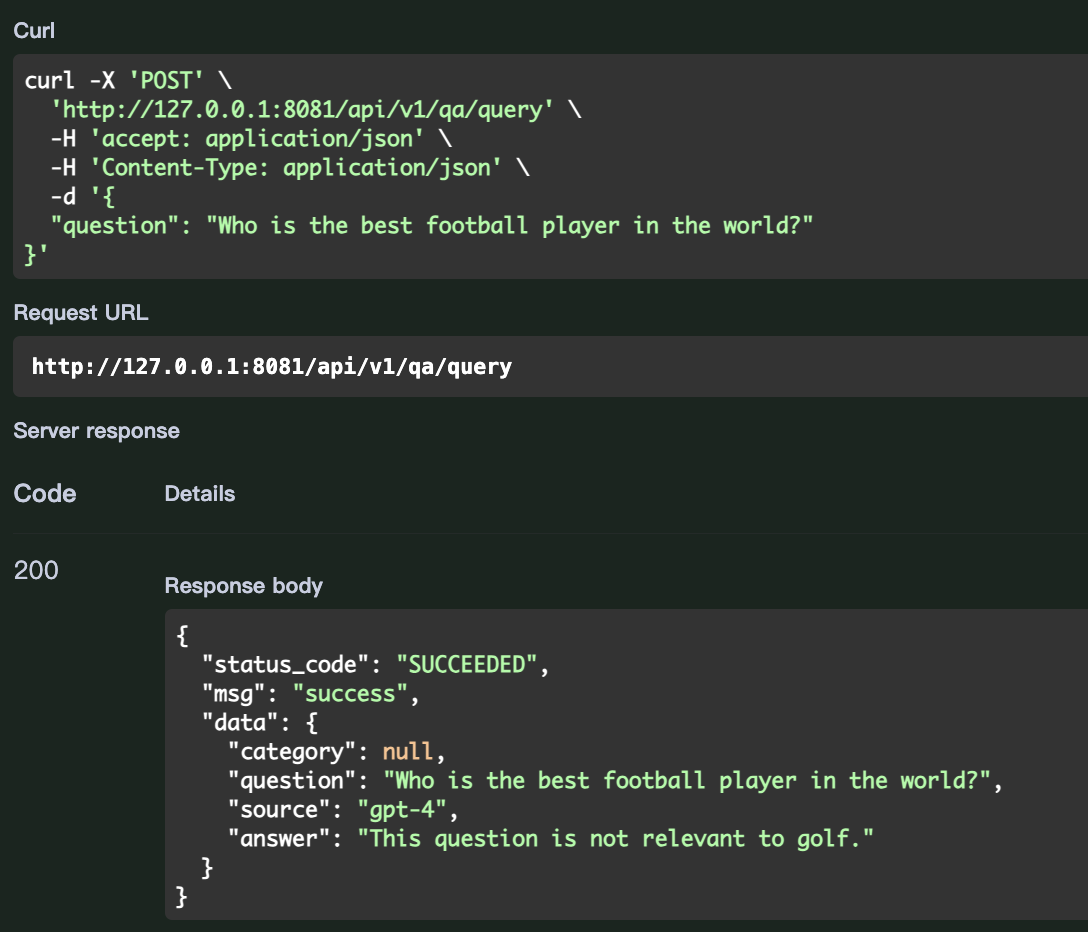A Local Knowledge Base Augmented LLM able to serve millions of users, on top of llama index, fastapi and MongoDB
there are 2 modes: question answering mode and chatbot mode.
- local knowledge base origins from a csv file of standard question/answer pairs. the standard questions are embedded( vectorized) by llama index when first run; while the standard answers are stored in MongoDB. the questions and answers are intended to be decoupled and saved in different places
- if user asks a question, query engine will try to find a matched question from local database, and if found, the bot will then query MongoDB to get the answer
- if no good matches found, the bot then call openAI's chatgpt api to get the answer, and insert the question into the index. so next time the bot will be able to answer a similar question from local database
- if the question is not relevant to the topic(in our case the topic is Golf), the bot will refuse to answer
- currently in development. the bot will be allowed to answer any questions, not necessarily limited to the topic. the bot will be able to extract information from chat history
- the bot uses fastapi as the web framework, llama index as the search engine, MongoDB as the metadata storage
- during the first run, csv file is ingested and the questions are embedded by llama index as vector store, and the answers and other metadata are stored in MongoDB
- the bot uses https://api.openai.com/v1/embeddings for embedding. it is very cheap and with high performance
- the bot uses https://api.openai.com/v1/chat/completions to ask chatgpt for answers. by default gpt-3.5-turbo is used as the model
- concurrency is naturally supported
- use openAI's Assistant API as the search engine(I've already tried, but it is not as good as llama index at the moment)
- more test cases
- Setup Environment
export OPENAI_API_KEY=your_openai_api_key
pyenv install 3.11.8
virtualenv -p python3.11 env
source env/bin/activate
pip install -r requirements.txt- Unit test
pytest -ss- Start the server
uvicorn app.main:app --host 127.0.0.1 --port 8081
# PYTHONPATH=. python app/main.py 8082PYTHONPATH=. python app/utils/api-docs/extract_openapi.py app.main:app --out openapi.yaml
python app/utils/api-docs/swagger_html.py < openapi.yaml > swagger.html
python app/utils/api-docs/redoc_html.py < openapi.yaml > redoc.html- Test cases(for local tests)
- write test cases in /app/tests/test_*.py
- need to pass local test cases before commit


